Putin threatens again: An updated timeline on potential nuclear escalation of the Russia-Ukraine war
By Susan D’Agostino, François Diaz-Maurin | February 29, 2024
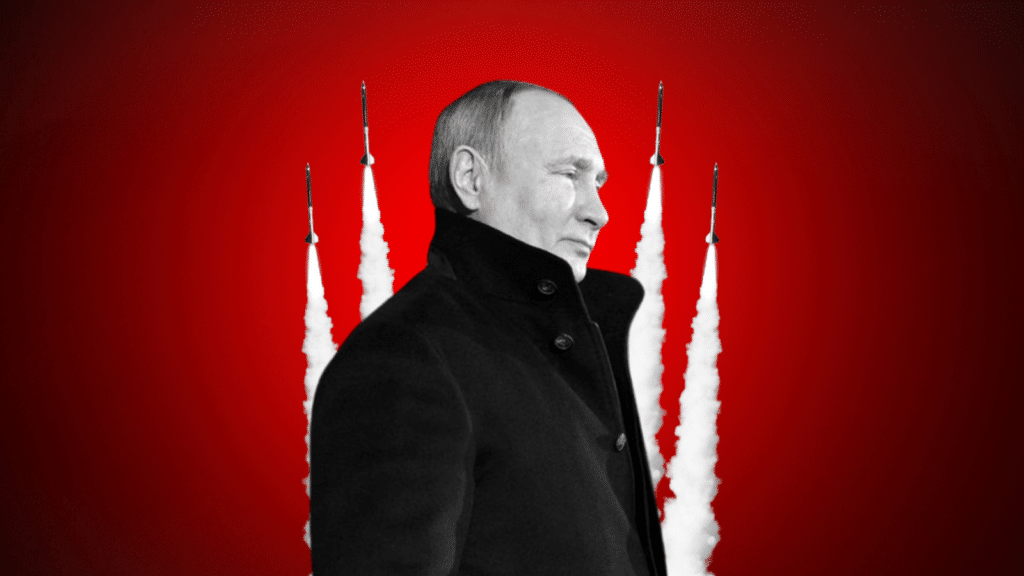
“The risk of global nuclear war has practically disappeared,” Mikhail Gorbachev, the last leader of the Soviet Union, said in his 1991 Nobel Prize acceptance speech, even though Russia and the United States retained their massive nuclear arsenals. In 2021, many were reassured when Russian President Vladimir Putin and US President Joe Biden during a Geneva summit reiterated the Gorbachev-Regan statement that “a nuclear war cannot be won and must never be fought.”
But ever since Russia’s February 2022 invasion of Ukraine, political leaders, nuclear arms control experts, and world citizens have tried to answer some version of the question: Will Putin use nuclear weapons in his war in Ukraine?
Putin again addressed the possibility this week in his annual State of the Nation speech, threatening to use nuclear weapons against NATO countries, if they send troops to fight against Russia in Ukraine. Putin’s comments apparently referenced French President’ Emmanuel Macron’s assertion that NATO countries could decide to send troops to Ukraine—a suggestion that the United States, the UK, and Germany almost immediately ruled out.
The utterances by individuals of note listed below, arranged chronologically, offer a still-unfolding existential narrative on whether nuclear war may or may not be imminent.
Editor’s note: This article updates the original, which was published on April 27, 2022, and a previous update on June 6, 2022.
Will Putin deploy nuclear weapons in his war with Ukraine?
-
February 29, 2024
Russian President Vladimir Putin“They must understand that we also have weapons that can hit targets on their territory,” Putin said of any deployment of NATO troops to Ukraine. “All this really threatens a conflict with the use of nuclear weapons and the destruction of civilization. Don’t they get that?”
-
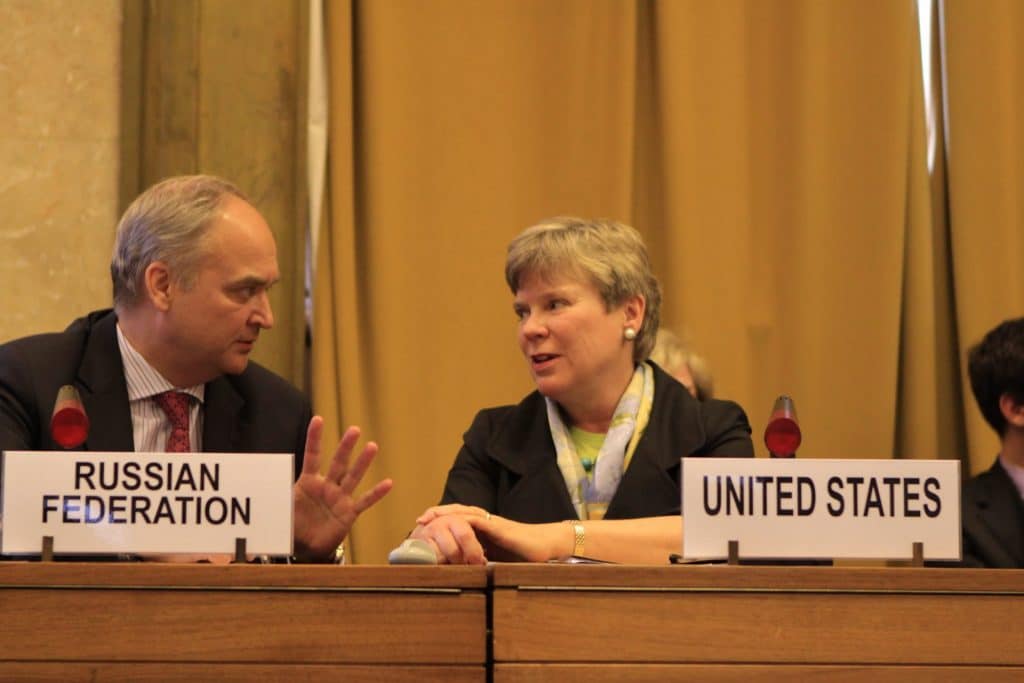
New START negotiators Rose Gottemoeller, then-Assistant Secretary of State for Verification, Compliance and Implementation speaks with Ambassador Anatoly Antonov of the Russian Federation at a June 3, 2010 plenary of the Conference on Disarmament. June 1, 2022
Rose Gottemoeller“I frankly think that the chances of nuclear use are greater than one percent but they are not 10 percent,” said Rose Gottemoeller, former undersecretary of state for arms control and international security and former deputy secretary general of NATO. “But the consequences of Putin using a single nuclear weapon, whether a demonstration strike or in any other way, we have to take it extremely seriously.”
-
June 1, 2022
Scott Sagan“The likelihood of Russian nuclear use today is less than it was back in late February,” said Scott Sagan, a senior fellow at Stanford’s Spogli Institute for International Studies. “However, unlikely things happen all the times ... and it behooves us to think through what we should do if Russia decides to use nuclear weapons.”
-
May 31, 2022
President Joe Biden“I know many people around the world are concerned about the use of nuclear weapons” Biden wrote in a guest essay published in The New York Times. But, he wrote, “we currently see no indication that Russia has intent to use nuclear weapons in Ukraine, though Russia’s occasional rhetoric to rattle the nuclear saber is itself dangerous and extremely irresponsible.”
-
May 5, 2022
Anatoly Antonov“The current generation of NATO politicians clearly does not take the nuclear threat seriously,” Anatoly Antonov, Russia’s ambassador to the United States, told Newsweek. “We are compelled to warn of the emerging risks associated with the intervention of NATO states into the Russian special military operation.”
-
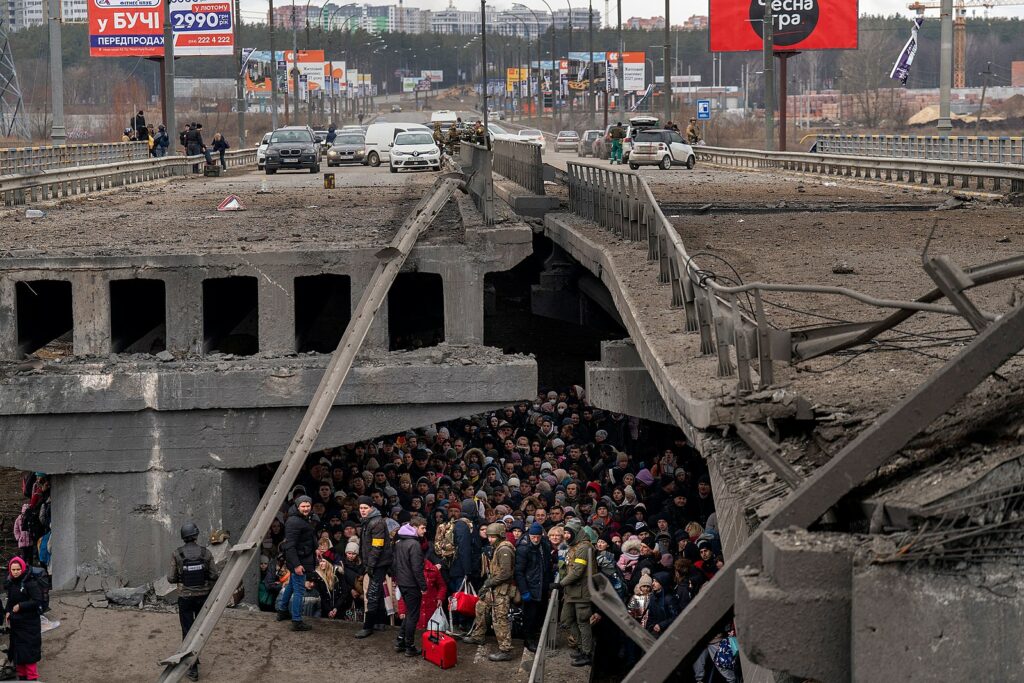
Ukrainian civilians and soldiers take shelter under a bridge in Kyiv. March 5, 2022. Credit: Міністерство внутрішніх справ України. Accessed via Wikimedia Commons. CC BY 4.0. April 23, 2022
Daryl Kimball“When nuclear deterrence fails, it fails catastrophically,” Daryl Kimball, director of the Arms Control Association in Washington, DC, said.
-
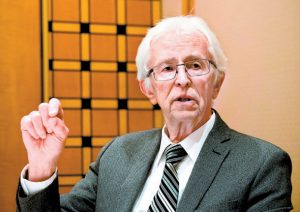
Siegfried Hecker April 21, 2022
Siegfried Hecker“I don’t really know [whether Putin is going to use nuclear weapons in Ukraine], although the chances are certainly non-zero,” Siegfried Hecker, former director of Los Alamos National Laboratory and one of the world’s foremost security experts, said.
-
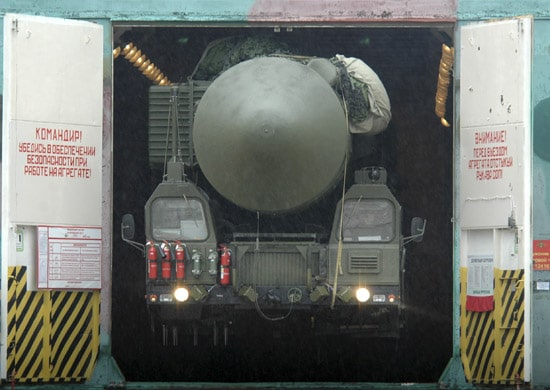
The new heavy Sarmat intercontinental ballistic missile underwent an ejection test at the Plesetsk state test cosmodrome in March 2018. (Credit: Mil.ru | CC BY 4.0) April 20, 2022
President Vladimir Putin“[The new Sarmat intercontinental ballistic missile capable of carrying nuclear warheads] will force all who are trying to threaten our country in the heat of frenzied, aggressive rhetoric to think twice,” President Vladimir Putin said.
-
April 20, 2022
Scott Sagan“Putin could order the Russian military to drop a single nuclear bomb on a Ukrainian city to try to coerce the Zelensky government into immediately surrendering. This frightening scenario is not fanciful. It is, after all, effectively what the United States did to Japan in 1945,” Scott Sagan, senior fellow at Stanford’s Spogli Institute for International Studies, said.
-
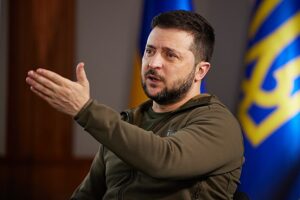
Ukraine's President Zelensky speaks to BBC on April 14, 2022. April 16, 2022
Ukrainian President Volodymyr Zelensky“We shouldn’t wait for the moment when Russia decides to use nuclear weapons. … We must prepare for that,” Ukrainian President Volodymyr Zelensky said.
-
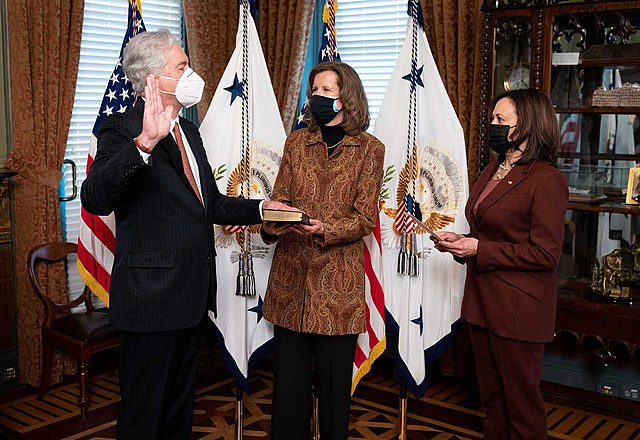
William Joseph Burns ceremonially sworn in as CIA director by Kamala Harris on March 23, 2021. April 14, 2022
CIA Director William Burns“[G]iven the potential desperation of President Putin and the Russian leadership, given the setbacks that they’ve faced so far militarily, none of us can take lightly the threat posed by a potential resort to tactical nuclear weapons or low-yield nuclear weapons,” CIA Director William Burns said. “While we’ve seen some rhetorical posturing on the part of the Kremlin, about moving to higher nuclear alert levels, so far we haven’t seen a lot of practical evidence of the kind of deployments or military dispositions that would reinforce that concern.”
-
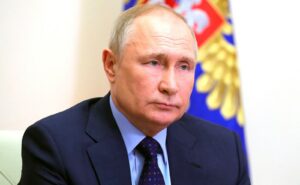
President Putin during a meeting with permanent members of the Security Council on April 7, 2022. (Credit: www.kremlin.ru | CC BY 3.0) April 13, 2022
Robert Gates“I think the odds of him using chemical or nuclear weapons is at this point pretty low,” Former US Secretary of Defense Robert Gates said.
-
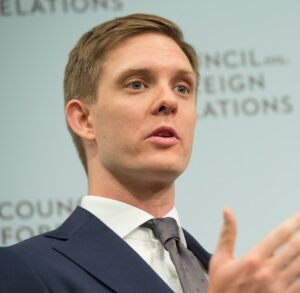
Adam Mount April 11, 2022
Adam Mount“The risk of Russia using a nuclear weapon in Ukraine is very low, and the public concern over nuclear use has far outstripped the nuclear risk,” Adam Mount, director of the Defense Posture Project at the Federation of American Scientists, said. “In some ways, it’s the threat that’s meant to do more work than the weapon itself.”
-
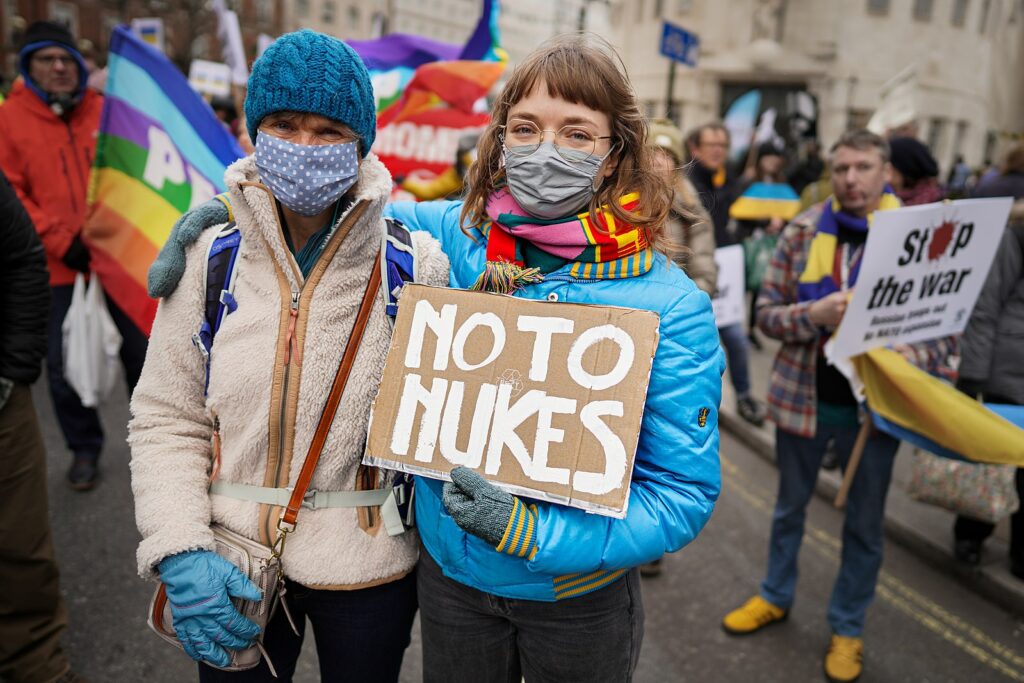
Anti-war protesters in central London on March 6, 2022. (Credit: Alisdare Hickson from Woolwich, United Kingdom | CC BY-SA 2.0) April 5, 2022
Dmitry Polyanskiy“Russia firmly adheres to the principle that there can be no winners in a nuclear war, and it must not be unleashed," Russia's First Deputy Permanent Representative to the United Nations Dmitry Polyanskiy said.
-
April 5, 2022
Hans Kristensen“None of that’s evident,” Hans Kristensen, director of the Nuclear Information Project at the Federation of American Scientists, said of Russia preparing for nuclear war.
-
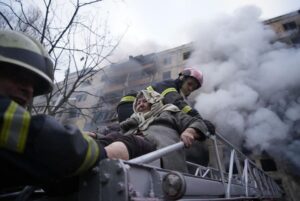
House on Bohatyrska Street in Ukraine after shelling on March 14, 2022. (Credit: dsns.gov.ua | CC BY 4.0) March 31, 2022
Senior US defense official“No indications at this time that they’re preparing to use [nuclear] weapons,” a senior US defense official, speaking on the condition of anonymity, said.
-
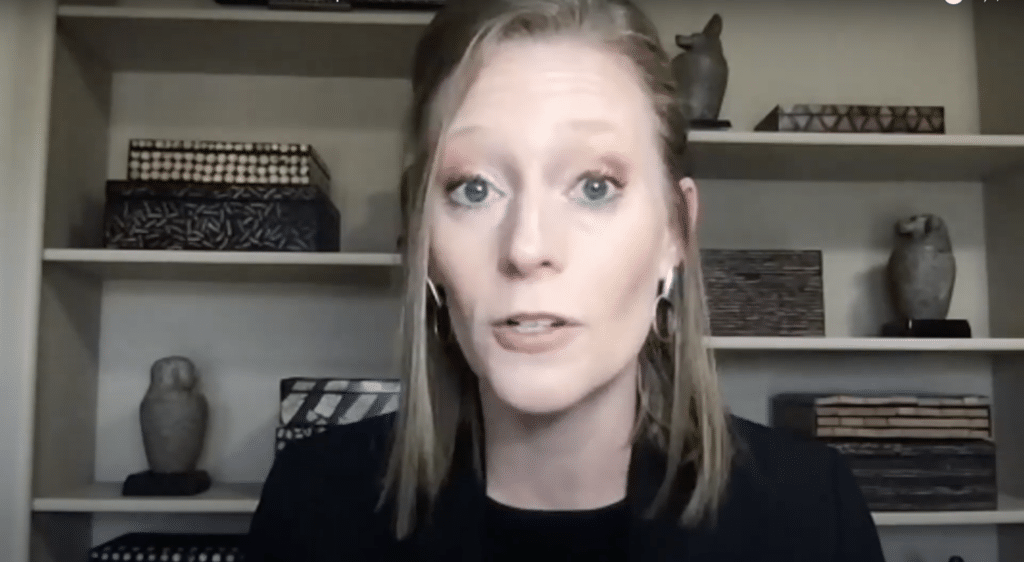
Sarah Bidgood discusses nuclear weapons and the war in Ukraine during a TEDxMidAtlantic episode. (Credit: TEDxMidAtlanticSalon on YouTube) March 29, 2022
Sarah Bidgood“… Russia could introduce nuclear weapons into a conflict when it felt it had run out of conventional options and was facing an existential threat,” Sarah Bidgood, director of the Eurasia program at James Martin Center for Nonproliferation Studies, said. “It’s hard to say, because we don’t have a good sense for what all of Putin’s red lines are here, or what he regards as an existential threat.”
-
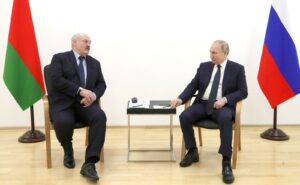
Vladimir Putin held talks with President of Belarus Alexander Lukashenko at Vostochny Cosmodrome. (Credit: www.kremlin.ru | CC BY 3.0) March 28, 2022
Dmitry Peskov“No one is thinking about using, about—even about idea of using a nuclear weapon, Kremlin Spokesman Dmitry Peskov said.
-
March 26, 2022
Shannon Bugos“The likelihood of Putin actually using nuclear weapons remains low, but the threat is still there,” Shannon Bugos, a senior policy analyst at the Arms Control Association, said.
-
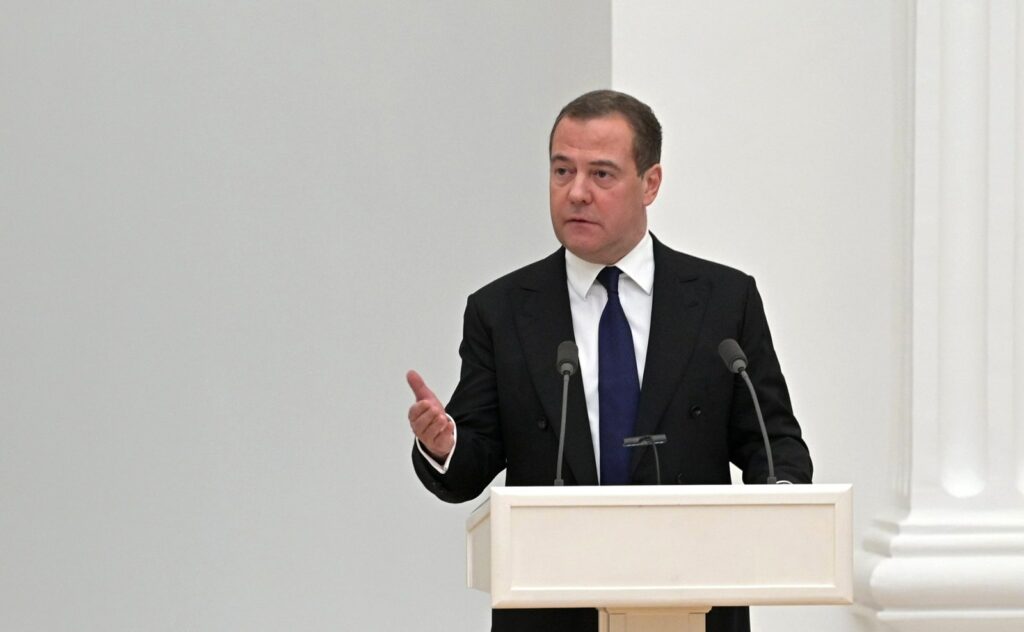
Dmitry Medvedev speaks at a meeting of the Security Council of the Russian Federation dedicated to the recognition of the DNR and LNR. (Credit: Администрация Президента России | CC BY 4.0) March 26, 2022
Dmitry Medvedev“We have a special document on nuclear deterrence. This document clearly indicates the grounds on which the Russian Federation is entitled to use nuclear weapons. … [This includes] when an act of aggression is committed against Russia and its allies, which jeopardized the existence of the country itself, even without the use of nuclear weapons, that is, with the use of conventional weapons,” Dmitry Medvedev, former Russian president and deputy chairman of the country’s security council, said.
-
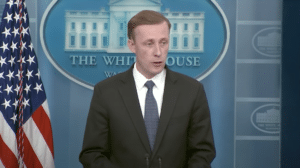
National Security Advisor Jake Sullivan speaks at a press briefing on March 22, 2022 at the White House. March 25, 2022
US National Security Adviser Jake Sullivan“[Potential nuclear weapon use in the current war] is something we do have to be concerned about,” US National Security Adviser Jake Sullivan said.
-
March 23, 2022
Michael Dobbs“The risks of a direct confrontation between US and Russian forces may be fairly low at present,” Michael Dobbs, author of One Minute to Midnight, an account of the Cuban missile crisis, said. “But if you multiply that by X months or X years and the number of things that could go wrong, they turn out to be similar mathematically [to the one-in-three nuclear-war odds that President John F. Kennedy had calculated during the Cuban Missile Crisis].”
-
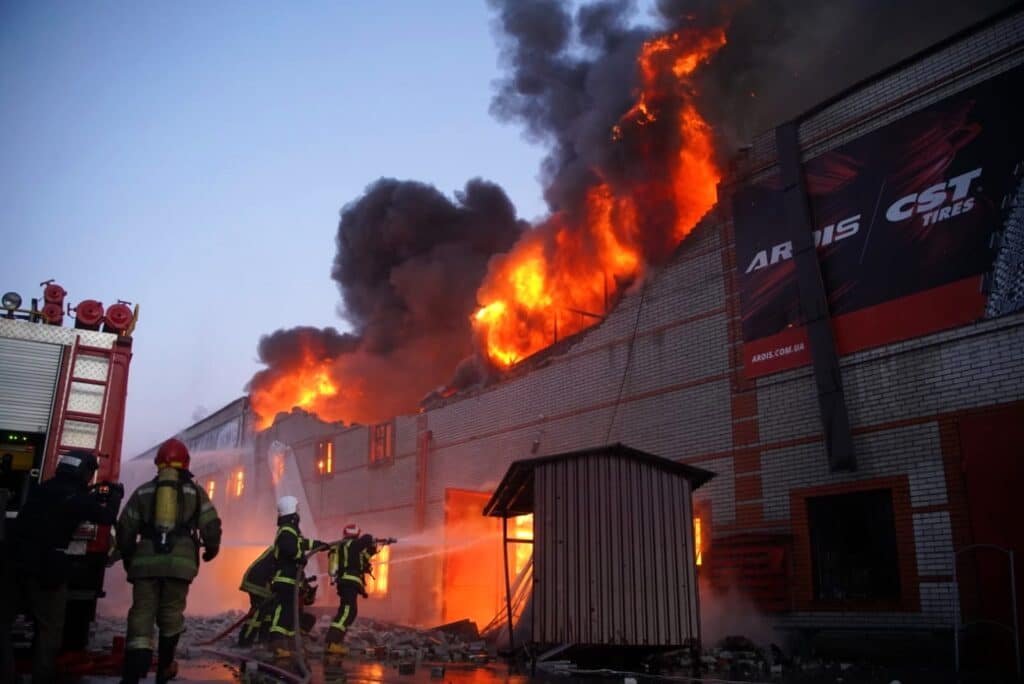
Storage building in Kyiv after Russian shelling on March 17, 2022. (Credit: dsns.gov.ua | CC BY 4.0) March 23, 2022
Graham Allison“[The probability that war in Ukraine will devolve into nuclear war is] less than one in 100—and in my best estimate, closer to one in 1,000,” Harvard political scientist Graham Allison said.
-
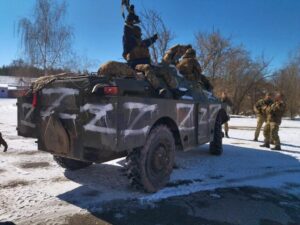
Armored reconnaissance and patrol vehicle recaptured in Luhansk Oblast from Russian troops by the State Border Guard Service and the Armed Forces of Ukraine. (Credit: dpsu.gov.ua | CC BY 4.0) March 21, 2022
Ulrich Kühn“The chances [of Russia using a nuclear weapon] are low but rising,” said Ulrich Kühn, a nuclear expert at the University of Hamburg and the Carnegie Endowment for International Peace told the New York Times. “The war is not going well for the Russians, and the pressure from the West is increasing.”
-
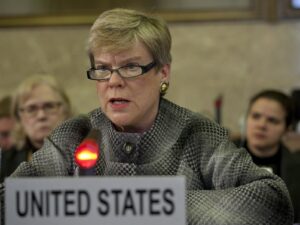
Assistant Secretary of State Rose Gottemoeller delivers U.S. opening statement at Conference on Disarmament in Geneva, Switzerland on January 24, 2012. March 17, 2022
Rose Gottemoeller"The Russians have told us that they have made no changes thus far in the operational status of their missiles per se, and I don't have any reason not to believe that,” Rose Gottemoeller, former deputy secretary general of NATO and undersecretary for arms control in the Obama administration, said.
-
March 15, 2022
Gen. (Ret.) Wesley Clark“I think we have to start from the presumption that he would welcome the opportunity to use nuclear weapons," Gen. (Ret.) Wesley Clark said. "He wants to show his determination. He wants to intimidate the West. He thinks he has a nuclear advantage.”
-
March 15, 2022
Gen. Scott Berrier“As this war and its consequences slowly weaken Russian conventional strength, Russia likely will increasingly rely on its nuclear deterrent to signal the West and project strength to its internal and external audiences,” Lt. Gen. Scott Berrier, director of the Defense Intelligence Agency, wrote in a report.
-
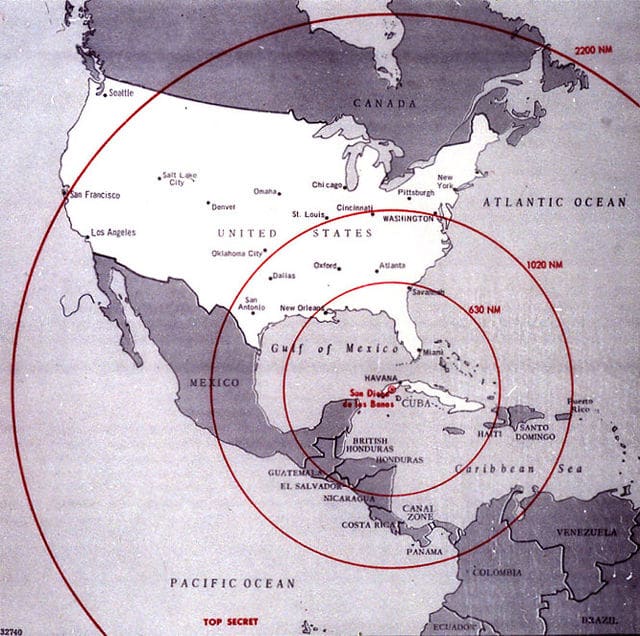
Map of Northern America showing the full range of the nuclear missiles under construction in Cuba, used during the secret meetings on the Cuban crisis. (Credit: CIA) March 15, 2022
Herb Lin“From a risk perspective, I believe we could be at about five or 10 percent of the Cuban Missile Crisis risk level,” Herb Lin, a security scholar at Stanford and the Hoover Instititution, said.
-
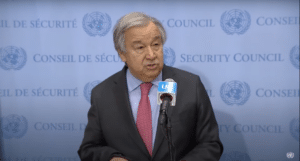
UN Secretary General António Guterres briefs journalists on Ukraine on on Mar 14, 2022. (Credit: United Nations YouTube) March 14, 2022
Secretary General António Guterres“The prospect of nuclear conflict, once unthinkable, is now back within the realm of possibility,” UN Secretary General António Guterres said.
-
March 7, 2022
Pavel Podvig“There is always the danger of inadvertent escalation,” Pavel Podvig, senior researcher at the UN Institute for Disarmament Research, said.
-
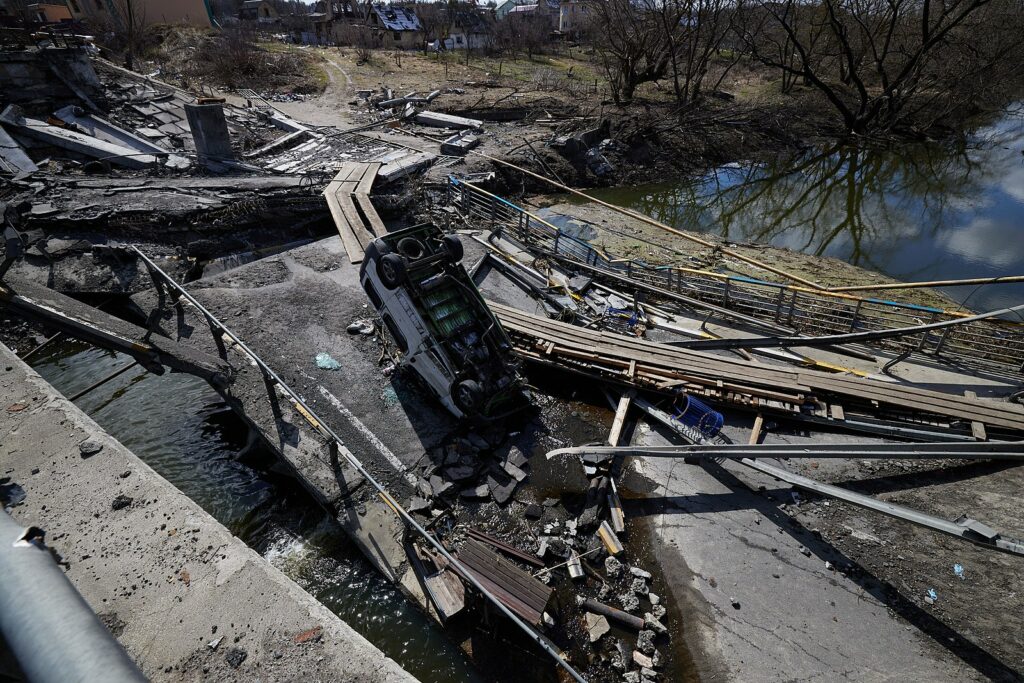
Destruction from the war in the city of Bucha in the Kyiv region. March 7, 2022
Lynn Rusten“It seems unimaginable that Russia would use nuclear weapons in Ukraine,” Lynn Rusten, a former White House staffer now at the Nuclear Threat Initiative, said. “There would be no reason for it.”
-
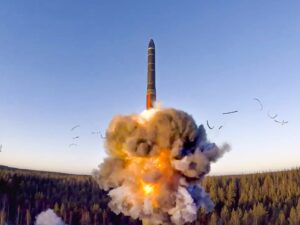
A 2020 test of a ground-based intercontinental ballistic missile from the Plesetsk facility in northwestern Russia. Credit: Russian Defense Ministry Press Service /AP. March 1, 2022
Olga Oliker"I think it's very unlikely that Moscow is just going to lob a nuclear weapon at something," Olga Oliker with the International Crisis Group said. "Obviously it's been a week when a lot of people's assumptions have been challenged, but I'll cling to this one for a while."
-

Press Secretary Jen Psaki holds a press briefing, Monday February 4, 2022 (Official White House Photo by Cameron Smith) February 28, 2022
Jen Psaki"At this time, we see no reason to change our own [nuclear] alert levels," White House press secretary Jen Psaki said.
-
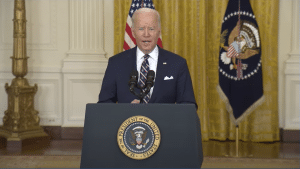
Credit: White House February 28, 2022
President Biden“No,” President Biden said in response to a question about whether US citizens should be concerned about the start of a nuclear war.
-
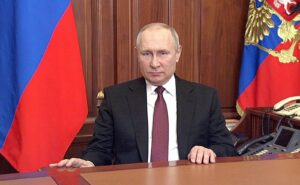
Russian President Vladimir Putin during his address on launching a "special military operation" in Ukraine on February 24, 2022. (Credit: www.kremlin.ru | CC BY 3.0) February 24, 2022
President Vladimir Putin“No matter who tries to stand in our way or all the more so create threats for our country and our people, they must know that Russia will respond immediately, and the consequences will be such as you have never seen in your entire history,” President Vladimir Putin said in a statement widely interpreted as a nuclear threat.
Together, we make the world safer.
The Bulletin elevates expert voices above the noise. But as an independent nonprofit organization, our operations depend on the support of readers like you. Help us continue to deliver quality journalism that holds leaders accountable. Your support of our work at any level is important. In return, we promise our coverage will be understandable, influential, vigilant, solution-oriented, and fair-minded. Together we can make a difference.
Keywords: Russia, Ukraine, existential threat, nuclear risk, nuclear war, nuclear weapons, war
Topics: Nuclear Risk, Nuclear Weapons
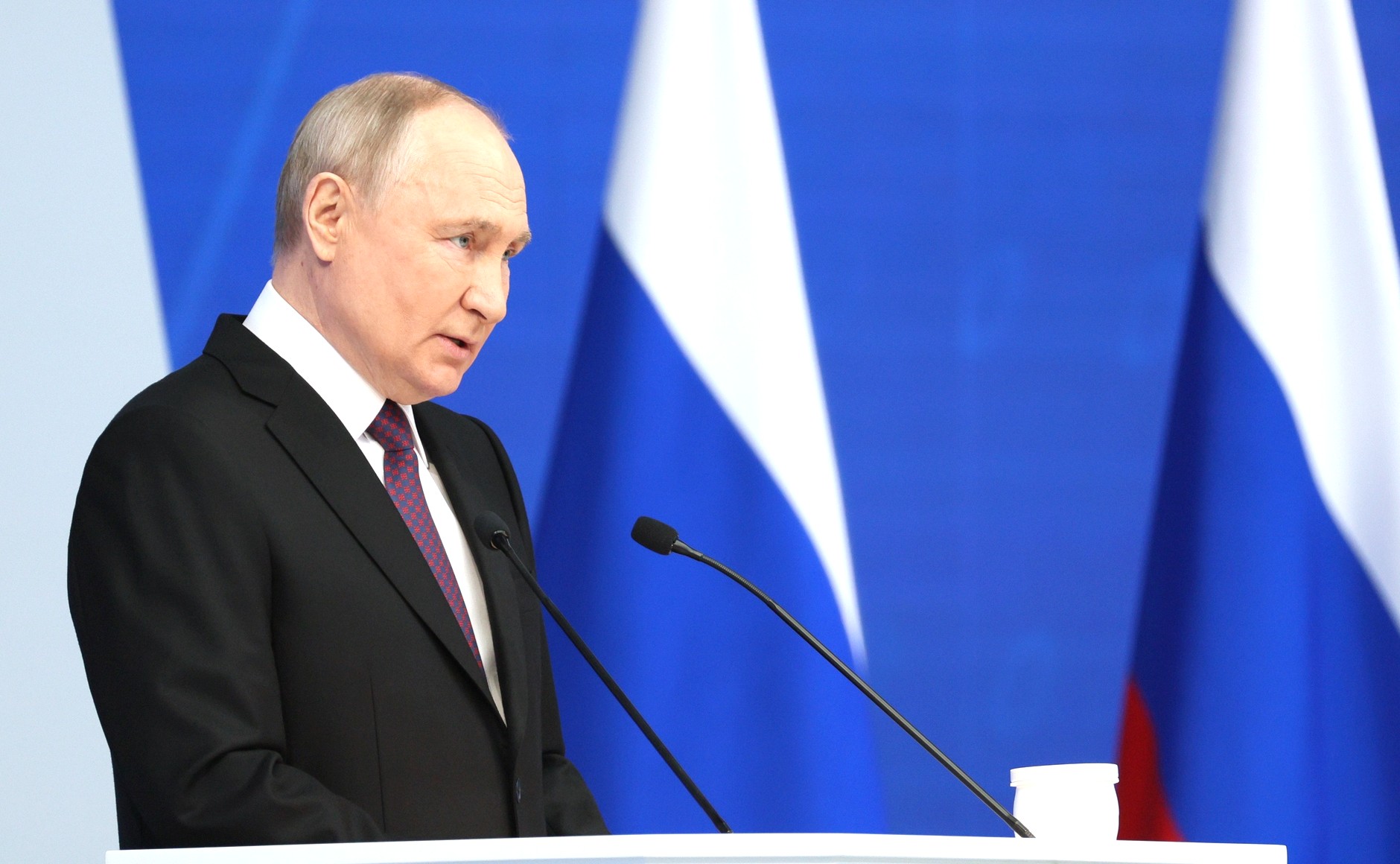
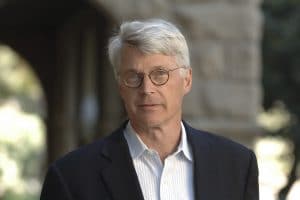
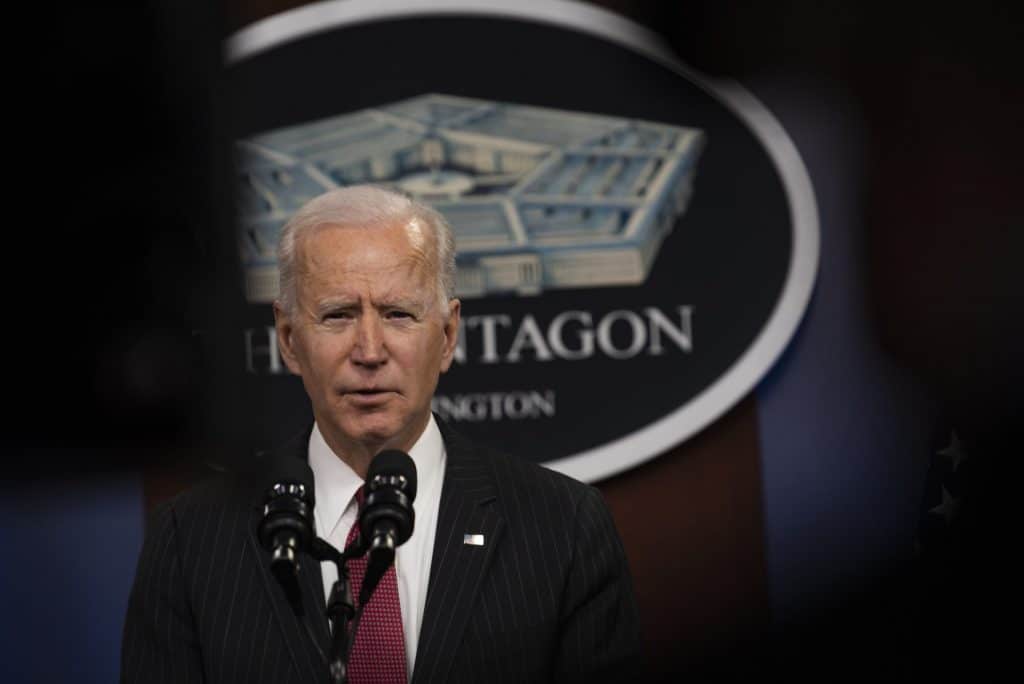
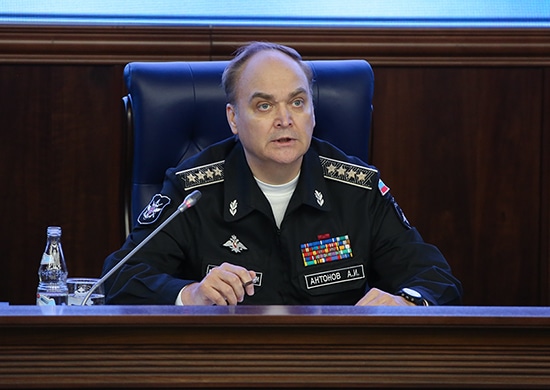



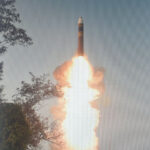
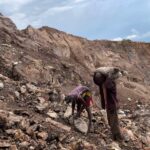

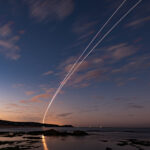
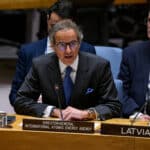
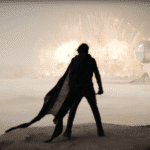
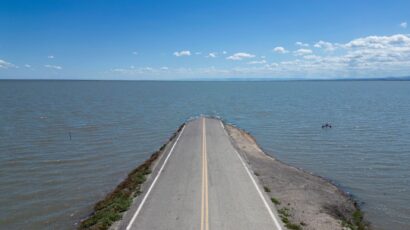
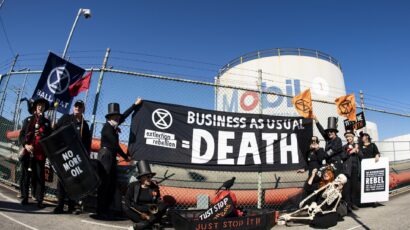
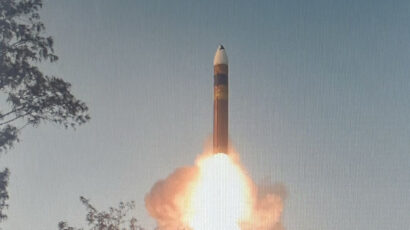
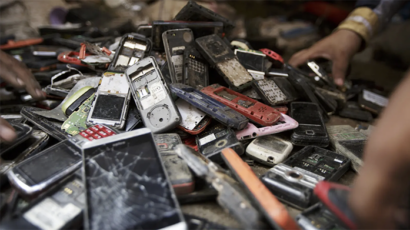
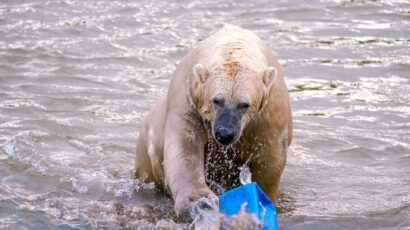
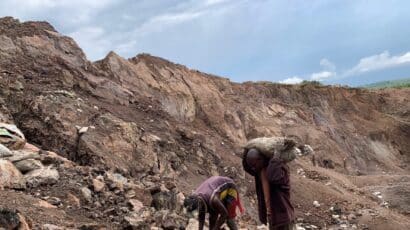


You all forgot to quote Carl Sagan. It must have slipped your mind. Here tis.
MAD mutual assured destruction is like two Implacable enemies knee deep in gasoline, one with 7,000 matches and the other with 5,000 matches a situation that if it wasn’t so sad it would be laugable”. I can say with some level of certainty that the situation has not changed. Forever and ever shackled to the nuclear genie.
Putin has stated that he sees himself as the next Peter The Great, that his purpose is conquest to take those nations he wants. He is being the biggest bully on the international playground. Putin would be a fool not to drop a nuclear weapon directly on Kyiv to secure absolute victory the same way that the US did so with Japan. I am astonished he has not done so already. If he did such a thing, no nation would respond. All would be terrified into compliance – no rational actor would risk full nuclear war. Ukraine would be lost… Read more »
I see Putin as a good, conservative poker player. He only makes aggressive moves when he sees the odds are significantly in his favor. Even then, he will not risk his entire bankroll because the use of nuclear weapons presents more significant risks than any possible reward. Putin retreated from his first objective, Ukraine, to focus on taking over Eastern Ukraine to control his risk exposure. The impetus for Putin’s aggressive move in Ukraine resulted from Trump’s four years in office. Trump had achieved for Putin what no American POTUS would ever consider doing. He solidified Putin’s ability to control… Read more »
Jenifer, your prediction and observations are spot on, and like you, I do not understand why the experts hold the views they do. There are several reasons why the likelihood is very high, including: 1. The release authority and procedures for tactical nuclear weapons use are delegated to a recklessly low level in the chain of command. When the tactical nukes are eventually deployed (and whose to say they aren’t already deployed), the risk of accidental release becomes very high. This means there are not as many moving parts to a tactical nuclear attack as there is in western militaries… Read more »
If the Russian leader really wants to be a modern Peter The Great, we can expect action, and Peter was a man of action. I am not a historian. Does Putin believe that he is a special agent of God? Doing God’s will? He has not said so in public. He is intelligent and determined and his mission is running into problems. I assume that he doesn’t like the way events are working out, but he hasn’t given an international speech recently. Peter The Great, despite his accomplishments, seemed to be personally insecure. He found enemies around him, for example, his… Read more »
M.A.D. is a factor. Is Putin’s crazy enough to deploy a nuclear weapon in Ukraine and is the U.S. crazy enough to strike Russia in retaliation. I doubt it, that would be a mass murder-suicide event and neither side is crazy enough to risk that.
But MAD only applies to strategic weapons. Tactical weapons and the concept of ‘limited nuclear war’ completely undermine the MAD doctrinal assumptions.
OK. So what’s the answer to all this? What should be done to de-escalate the situation and who should do it? Who is going to be the brave country to put the welfare of the world ahead of its own hegemonic interests? Will it be the seemingly somewhat more democratic nations in the West or the seemingly less democratic nation in the East? Who wants to stand up and be a true hero? Any takers?
From a realist perspective, facing the latest developments of the conflict on the battlefield in Ukarine, and having in mind the sequence of events in the territory of Ukraine and Russia´s border, Putin`s nuclear sabre-rattling initiated on 24FEB22 has not significantly changed since then, so have not the probabilities of Russia using any tactical NW, so far. Kremlin´s discourse has been mostly steady and persistent but also consequenceless in avoiding further West incremental quality of military assistance to Ukraine. The Kremlin officials nuclear rethoric and the “collective West” vehement replies have very much served to reinforce the security dilema, keeping it… Read more »
Perhaps it is time to go on the offensive, information wise. Think of a leaflet drop over Moscow (or the equivalent). Each would say: “Putin is saying he will use nuclear weapons in the Russian war of Genocide against Ukraine. The obvious retaliation target is Moscow. From nuclear tests we know that within xx km all will die; within yy km all will get radiation poisoned; within zz km all will get delayed exposure leading to early death. You must be 50-100 km from Moscow to be safe at all. If you can, think about moving away before it is… Read more »
If leaflets were dropped, my thought would be to drop leaflets informing Russian citizens of why the war in Ukraine is unjust and why they should seek to end it, and that Putin is threatening nuclear retaliation that would endanger the whole world.
I think threats against the population would be unethical. The focus should be on information and de-escalation of hostilities. Scaring people will only produce irrational decisions.